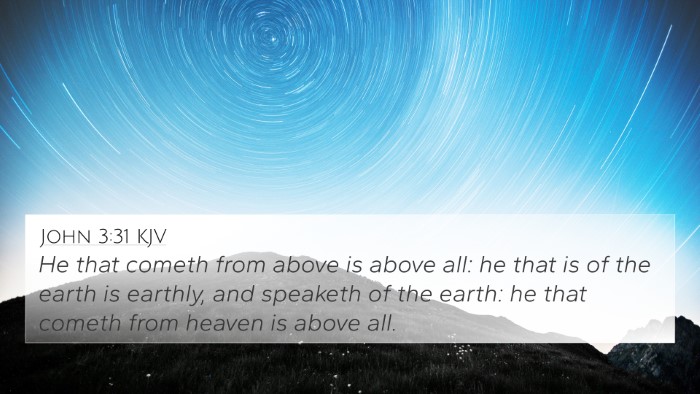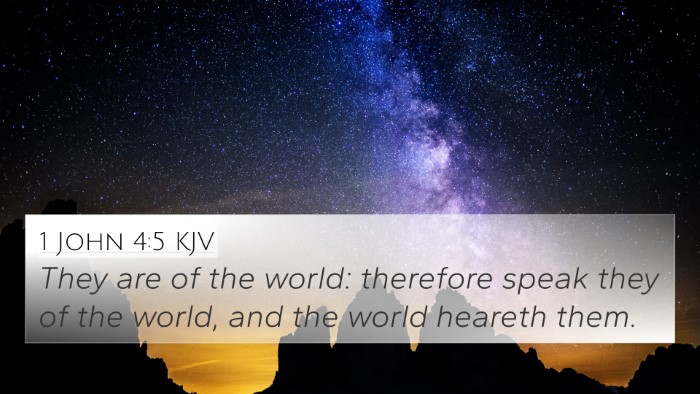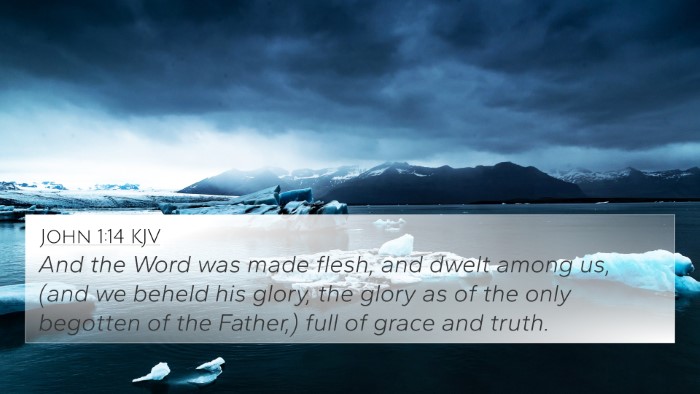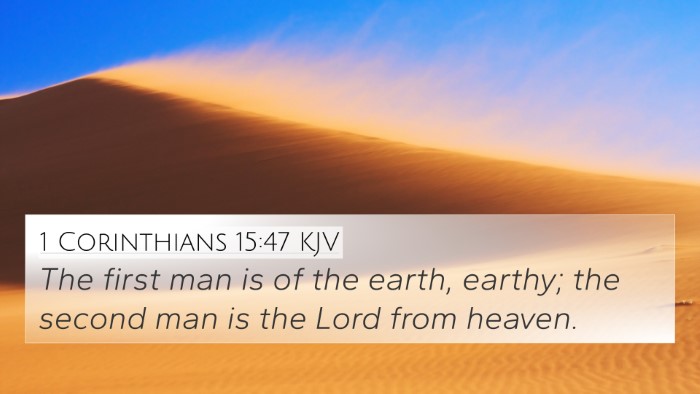Understanding John 8:23
John 8:23 states: "And He said to them, 'You are from below; I am from above. You are of this world; I am not of this world.' This verse captures a profound distinction between Christ's divine origin and earthly existence versus the earthly nature of humanity.
Contextual Background
In this chapter, Jesus engages in a dialogue with the Pharisees, revealing His identity and origins. The context is crucial to understanding the implications of His words, illustrating the tension between divine and human perspectives.
Verse Interpretation
-
Matthew Henry's Commentary:
Henry emphasizes the contrast between Jesus and His listeners. He reflects on how Jesus declares His heavenly origin, thus underscoring His authority and divinity. The phrase "You are from below" points to a worldly perspective influenced by sin and ignorance.
-
Albert Barnes' Notes:
Barnes highlights the spiritual implications of Jesus' claim. By stating that He is "from above," Jesus indicates His divine mission and purpose. This divine nature separates Him from the worldly understanding that His audience possesses, and it serves as a challenge to their self-righteousness.
-
Adam Clarke's Commentary:
Clarke provides insight into the contrasting identities of believers and non-believers. He points out that being "of this world" refers to a mindset tied to materialism, while Jesus embodies the spiritual reality of God's kingdom.
Thematic Connections
This verse can be linked to various other scriptures that highlight the themes of duality in origin, nature, and purpose:
-
John 17:14-16:
Jesus speaks of His followers who are "not of the world" just as He is not, expanding this theme of spiritual separation.
-
Colossians 3:2:
Here, Paul urges believers to set their minds on things above, reinforcing the need to align one's focus with heavenly realities.
-
Philippians 3:20:
This verse reminds Christians that their citizenship is in heaven, further emphasizing the distinction between heavenly and earthly existences.
-
Hebrews 11:16:
The author describes the faithful as longing for a better country, a heavenly one, indicating a natural inclination away from worldly attachments.
-
James 4:4:
James warns against friendship with the world, portraying it as enmity with God, echoing Jesus’ separation of identities in John 8:23.
-
1 John 2:15-17:
This passage emphasizes the futility of loving the world and its desires, echoing the themes Jesus presents concerning His nature versus the worldly nature.
-
Romans 12:2:
Paul encourages believers not to be conformed to this world but transformed by the renewal of their minds, further indicating a deeper spiritual understanding.
-
Matthew 6:19-20:
Jesus teaches about storing treasures in heaven rather than on earth, reinforcing the idea of valuing the eternal over the temporal.
-
John 3:31:
John the Baptist states that "He who comes from above is above all," which resonates with Jesus’ statement about His origin and mission.
Conclusion
John 8:23 serves as a profound reminder of the divine nature of Jesus Christ versus the earthly existence of humanity. Each associated scripture strengthens our understanding of this theme and encourages deeper reflection on our own identities as believers in Christ. This verse, and others like it, invite us to explore the connections between the sacred texts and examine the overarching themes of separation between the divine and the worldly.
Additional Resources
For those interested in further studying the connections between Bible verses, consider using a Bible concordance or a Bible cross-reference guide. These tools facilitate a deeper understanding of how various scriptures relate and interact within the fabric of Biblical teaching.

















